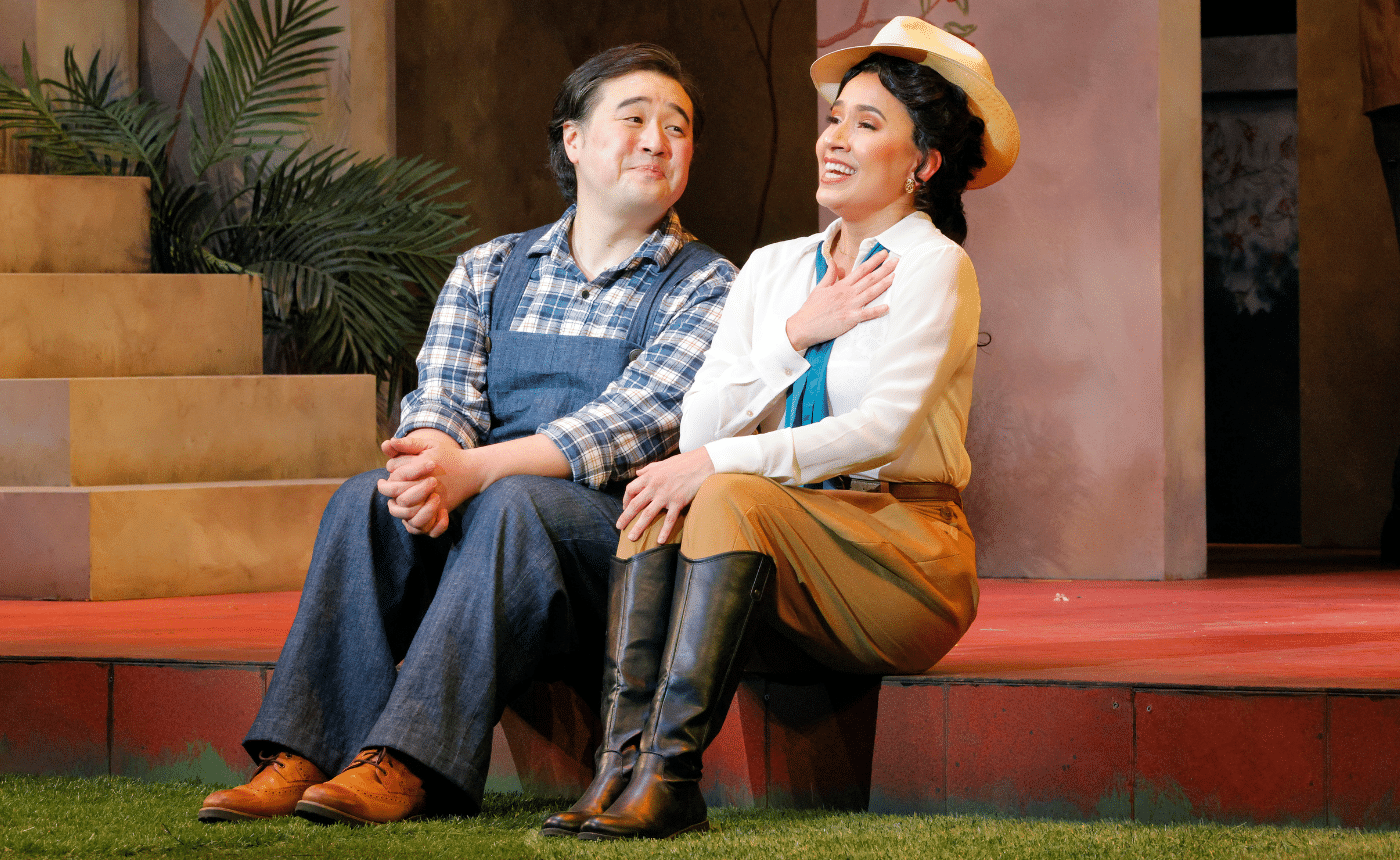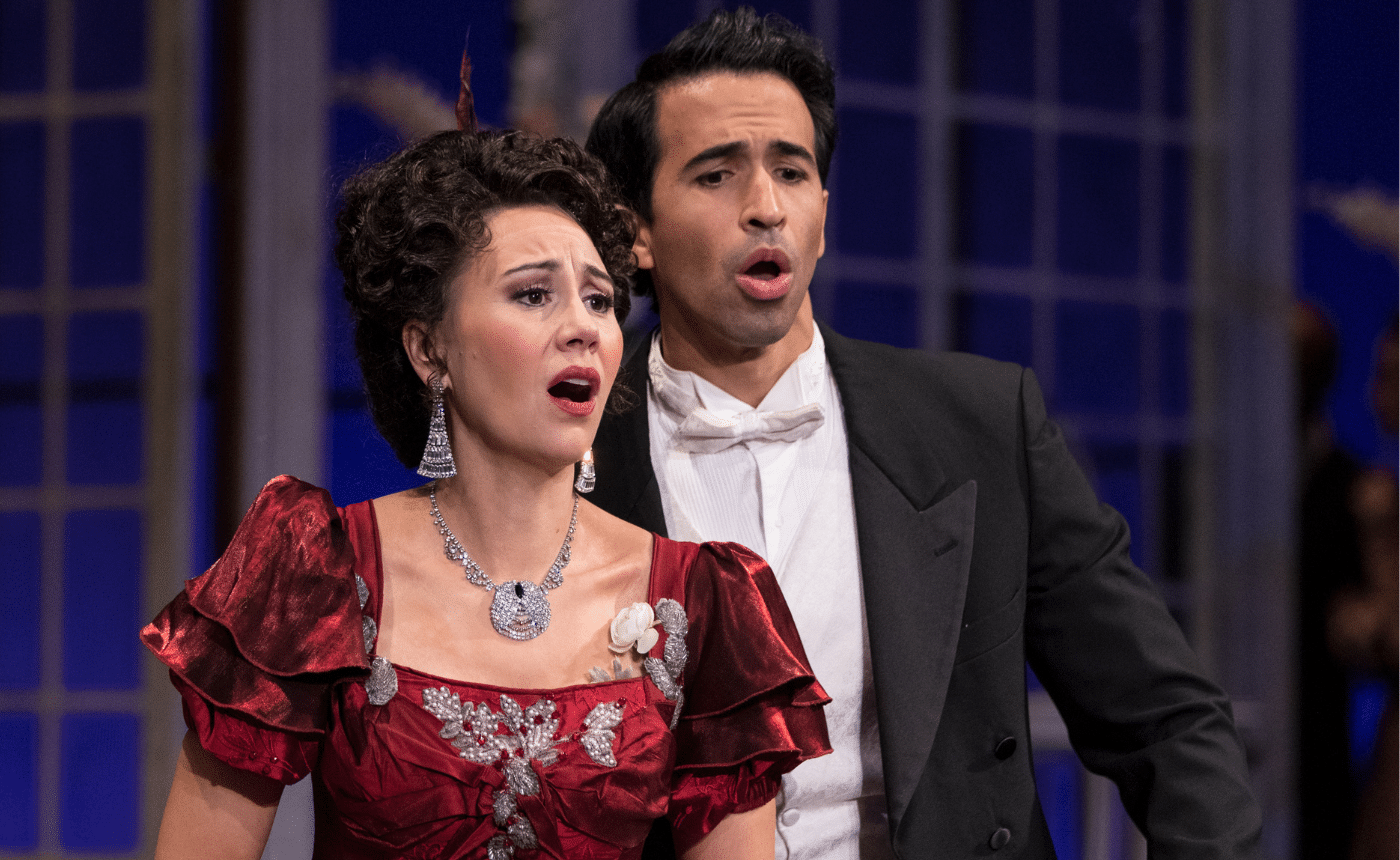Synopsis: Puccini’s Gianni Schicchi
Written by Michael Clive
Setting: Florence, Italy
In an elegant chamber in medieval Florence, all the relatives have gathered around the bed of the rich patriarch Buoso Donati. After a long illness, he has died. As they piously express their love and devotion for the recently departed, it’s clear they are all interested in just one thing: the contents of his will.
All have hopes for a legacy, and all have fears that others will beat them to it. Buoso’s brother-in-law, Betto, has heard that the old man has left everything to a monastery, and this sends the relatives scrambling to find the will. But Buoso’s young nephew Rinuccio believes he has been well remembered and hopes his inheritance will enable him to marry his beloved Lauretta, the daughter of Gianni Schicchi.
As newcomers in the clannish city of Florence, Schicchi and Lauretta are frowned upon by most of Buoso’s family. When Rinuccio finds the will, he withholds the contents until his snobbish cousins accept his engagement to Lauretta. They agree, but with one condition: A legacy from Buoso must leave the couple respectably rich in the eyes of their Florentine neighbors.
With Schicchi and Lauretta on the way, the will is unfurled, and its contents leave the family moaning in amazed disappointment: Betto was right. And after all, what need has a monastery for such riches? With wealth seemingly so close yet out of reach, the real bereavement begins. No one can think of a remedy, and an alliance with Schicchi is now unthinkable. When he arrives with Lauretta, father and daughter are shunned…at first. But Gianni Schicchi is nothing if not crafty. The love-struck Lauretta pleads with him, and Schicchi—despite wanting nothing to do with the Donatis—agrees to look at Buoso’s will to see what might be done. Unfortunately, the arrangements seem ironclad. Unless…
First, Schicchi sends Lauretta out of the room, protecting her from knowledge of his scheme. Then, confirming that only those present know of Buoso’s death, Schicchi orders the body removed. Ready to take Buoso’s place on the deathbed, he instructs the relatives to send for the notary. When he reveals his plan to impersonate Buoso and dictate a new will before “dying,” the entire family unites, overcoming all complications and even helping him with the disguise, even though—as Schicchi reminds them—the punishment for falsifying a will is exile from Florence and loss of a hand.
When the notary arrives, Schicchi histrionically dictates a new will, declaring all previous versions invalid. As the bequests mount, so do the family’s tense expectations. When he declares that Buoso’s house and the bulk of his estate are to be bequeathed to his “devoted friend Gianni Schicchi,” they are outraged. In the presence of their notary, the horrified family is helpless—but Schicchi now has the dowry he needs to unite his daughter with the man who loves her.
As the opera draws to a close, Gianni Schicchi turns to us in the audience, asking us to agree that Buoso’s wealth could find no better purpose. And could any daughter’s loving father disagree? Though the immortal Dante consigned this schemer to hell, when he begs our forgiveness, it is hard to say no.




